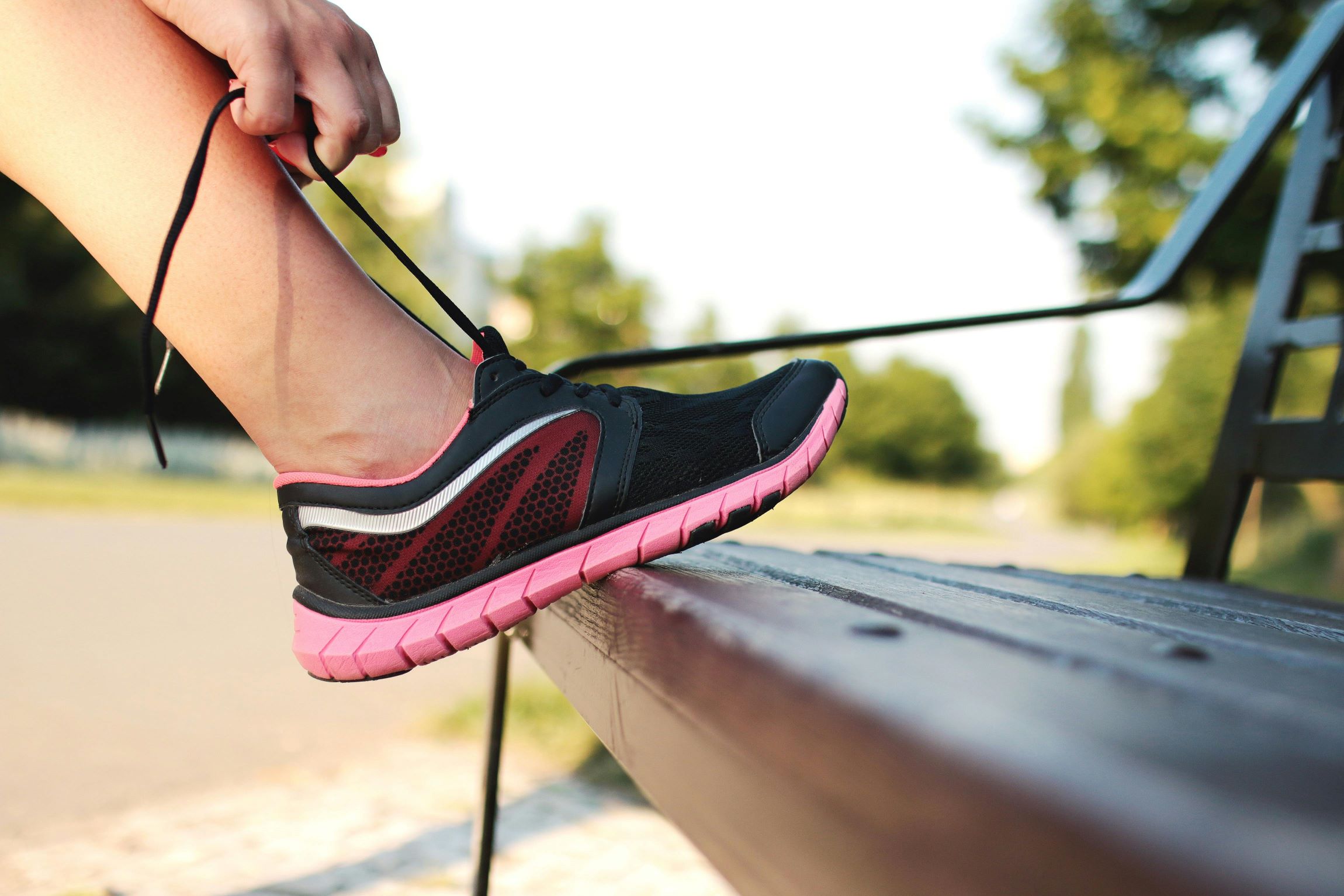For runners with irritable bowel syndrome (IBS), the joy of pounding pavement can often be clouded by the worries of unpredictable bowels. Whether training or a Parkrun, the bloating, cramps and the urgent need to find a loo can turn a liberating run into a stressful race against time. Ask any runner with IBS where the nearest loo is and they’ll be able to tell you! But fear not, running with IBS is possible. There’s hope in the form of the low FODMAP diet, a dietary approach that can help you manage IBS and reclaim your running bliss.
Navigating the IBS maze
IBS is a chronic gut condition affecting 10-15% of the population. If you have a sudden onset of symptoms, you should check it out with your GP (see below). Exercise, whilst generally beneficial, can be a double-edged sword for IBS sufferers. The increased blood flow to muscles during exercise diverts blood from the gut, leading to digestive problems. Certain foods, stress and of course exercise can trigger IBS symptoms like bloating, diarrhoea and constipation. Additionally, even some running gels can trigger symptoms. This often leaves runners feeling restricted and frustrated, wondering if they can ever achieve their running goals without gut trouble.
Types of IBS
IBS is unique to each sufferer, but often there are shared characteristics. IBS can be categorized into different types based on the predominant symptoms:
- IBS-D (diarrhoea-predominant): Individuals with IBS-D experience frequent episodes of diarrhoea. This can be accompanied by urgency and a constant need to use the toilet
- IBS-C (constipation-predominant): IBS-C is characterized by infrequent bowel movements and hard, lumpy stools. People with this type often struggle with abdominal discomfort and a feeling of incomplete evacuation
- IBS-M (mixed-type): Some individuals may experience a mix of both diarrhoea and constipation, with their symptoms varying over time
- IBS-U (unsubtyped): This category is used when the symptoms do not clearly fit into any of the above types
Check out your IBS with your GP
If your bowel habits change suddenly, you have blood in your stools or you have sudden weight loss it would be sensible to see your GP as soon as possible. If you’ve had IBS symptoms for some time, then your doctor may suggest some investigations to rule out other causes for your symptoms. These may be blood tests to detect deficiencies or gluten sensitivity (coeliac disease, for example). If these are inconclusive or you have other risk factors, you may be referred to a gastroenterologist for a colonoscopy or endoscopy. Try not to worry though, as a diagnosis of IBS is usually made by ruling out other conditions.
Can the low FODMAP diet help?
If you have a diagnosis of IBS, sometimes called a functional gut disorder, then the low FODMAP diet can help. FODMAPs (Fermentable Oligosaccharides, Disaccharides, Monosaccharides and Polyols) are short-chain carbohydrates poorly absorbed by the small intestine. This malabsorption leads to fermentation in the large intestine, causing that familiar IBS discomfort. This evidence-based diet involves temporarily limiting high-FODMAP foods and choosing low-FODMAP alternatives, followed by a process of reintroduction. Using this approach, IBS symptoms can be significantly reduced, allowing runners to enjoy their workouts without the worry of flare-ups.
Exercise alongside dietary changes
The low FODMAP diet has been shown to improve symptoms in over 75% of IBS sufferers. Many say that it’s been life-changing for them. So, there’s a good chance it can help if you’re struggling with IBS. The low FODMAP diet is an efficient way of identifying food triggers. With support, sufferers can identify their triggers and improve management of IBS symptoms. Many report the positive effects this has on their exercise regime. For more information on the process see my webpage on IBS treatment.
Tips for running with a low FODMAP diet
- Fuel wisely: Stick to low FODMAP snacks and meals before, during and after runs. Rice cakes with almond butter, bananas and gluten-free bread are safe options. Consider low FODMAP sports nutrition products for longer runs
- Hydrate strategically: Dehydration can aggravate IBS symptoms. Aim for water or low FODMAP electrolyte drinks during runs
- Timing is key: Don’t run immediately after eating. Leave a 2-3 hour gap for digestion before hitting the pavement
- Listen to your body: Start slow and gradually increase distance and intensity. Pay attention to how your body reacts and adjust your training plan accordingly
- New to running: Check with your GP before embarking on a new, rigorous exercise regime and always start off slowly, building up as you become more able
Change your life in just three sessions
Need help to manage your IBS symptoms? I’m based in Cardiff, but work with IBS sufferers across the UK through online sessions. The vast majority of my clients have found that only three sessions are needed before they feel confident to move forward on their own. I will send you booklets, which have an extensive list of all the foods you can eat on the low FODMAP diet. I’m available for advice and support between sessions. Find out more about my IBS symptoms relief package. I offer a free initial telephone call for you to decide whether the low FODMAP diet is right for you. So give me a call or fill out the contact form.
Many of my clients say that working with a specialist IBS dietitian has been life-changing, and are finally managing to live more comfortable lives.
Read about previous client experiences and to help you decide it this is the right approach for you, see my webpage about IBS treatment.
Conclusion
Remember, FODMAPs are just one piece of the puzzle. Managing stress, getting enough sleep and practicing relaxation techniques can further soothe your gut and enhance your running experience. By combining awareness, dietary adaptations and self-care, you can manage IBS, fuel your runs with FODMAP-friendly energy and achieve your running goals. Remember, progress, not perfection, is key. So, lace up your shoes, adjust your mindset and get ready to reclaim the joy of running with a happy gut!
Disclaimer: This blog is for information purposes only and does not substitute for professional medical advice. Please consult your healthcare provider for personalised diagnosis, advice about exercise and treatment of IBS.




